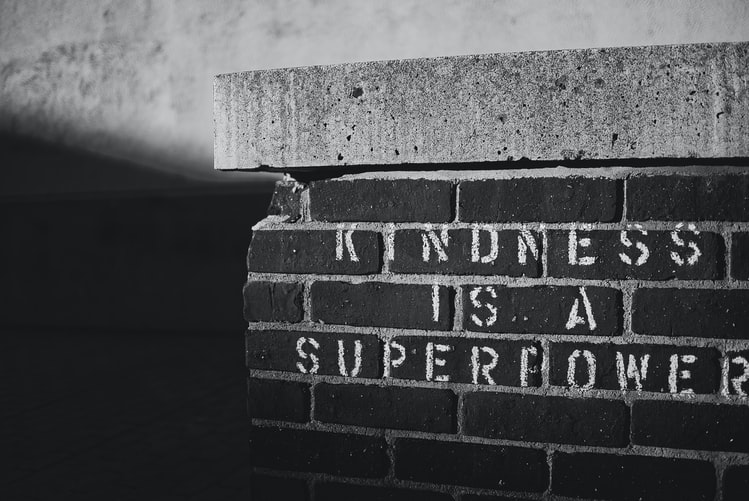World Wellbeing Week: How To Evaluate Your Wellbeing
The third World Wellbeing Week is here – and for most of us, it couldn’t have come at a better time. The past 18 months have been tougher than tough, and yet our gradual re-emergence back into society may not have had quite the cathartic effect we were hoping for. The feelings of uneasiness when making arrangements, the lack of social spontaneity, and our disbelief of the return of the choc-o-bloc diary after such a stretch of extended solitude are some of the subtler anxieties and stresses we are all facing in this ‘New Normal’. It’s no wonder we might not be feeling our usual selves and why it’s never been so important to slow down, reflect, and prioritise our health and happiness.

Wellbeing can generally be defined as the state of feeling comfortable, happy and healthy, although different internal and external factors will affect this for each of us in unique ways. There is no one-size-fits-all approach to enhancing our wellbeing, and what we will need to optimise and experience joy at each age and stage will differ.
We have put together a simple wellbeing guide with some core themes and a few pointers that we hope you might find useful. This guide is not exhaustive, but by focusing the lens on some areas in our lives and making some small adjustments, we hope that we can all take a step towards leading a healthier, happier, and more fulfilling life.
Let’s get physical!
Our bodies are where we live, every day and for the rest of our lives, so taking care of ourselves certainly should start from within. With so much conflicting information out there on the do’s and don’ts of what you should and shouldn’t be doing, we really believe that what feels right for you is most often best and that balance really is key.
Take some time to reflect on your sleep pattern. Sleep is a central pillar in supporting your body to rest and repair and for your mind to relax and recharge. Although for each of us our sleep requirements will be different, a third of us report suffering from a lack of sleep and this not only makes us feel grouchy, but increases the risks of cardiovascular disease and diabetes, slows tissue repair, and disrupts the immune system.

With so many of us working on computers we just aren’t moving enough. This isn’t about ab-toning, but really supporting mind and body from the inside-out. The health benefits of exercise are endless – improved circulation, less aches and pains, and a reduction in risk for multiple diseases, just to name a few! But exercise also works wonders for your mind through the release of hormones called endorphins, which leave you feeling brighter and energised. Experts recommend mixing it up when choosing which exercise is right for you. This is to target and strengthen different muscle groups and prevent over-working one area.
Tune into your emotions
Despite what we may see on social media, life certainly isn’t without its ups and downs. Most people have experienced feeling stressed or anxious and yet we still feel a huge pressure to push through, ignore feelings, and not hold space for ourselves. The past year and a half has taught us that many things are out of our control, and so normalising the unpredictability of life’s broad pallet of highs and lows is crucial. Knowing that it’s okay if things aren’t always perfect can help us to practice self-love and acceptance, and preparing ourselves for the down days with regular simple practices can help us build a personalised tool-kit for emotional resilience.

Try asking yourself how you are feeling when you first wake up and before you go to bed. You can rate how you feel with a number, draw how you feel, identify any sensations you have in your body, or use words – keeping a journal may help with this. Identifying your feelings can help give clarity around what might be influencing them. Doing a mental check-in throughout the day can also help, and if you are feeling stressed, give yourself a minute’s breathing space, have a change of scene, or go for a walk. It may be helpful to talk things through with a friend or loved one, or meeting with a therapist or coach if you feel you can’t manage things alone.
Know what’s going on financially
Talking about money can be uncomfortable, especially as so many people have suffered financially during these unprecedented times. Yet wanting to make positive financial decisions for yourself and your loved ones is important, as our finances can bring a lot of stress and worry into our lives and we can easily lose sight of our goals and dreams. Whether you want to pay off your credit card, cut down your outgoings, buy a property or even start a company, stepping into your own and creating a structured plan can help keep you on track and help soothe anxiety.

If you are stuck on where to start, try reflecting on where you are now by looking at your in-and-outgoings and try to spot any spending patterns. There could be areas where you are overspending and you may be able to cut down here and there or re-prioritise needs. This of course may not be possible for some, or maybe now just isn’t the right time. But checking in with where you are regularly can provide reassurance, feel empowering, and help us along the way to financial independence – whatever that means for you.
Thinking about a 5 or 10-year plan can be useful for some, and trying out a savings app to help you with budgeting can provide a quick and easy solution. You can also speak to a financial advisor that can provide you with professional support, either privately or through local community projects.
Set boundaries for your social life
We are definitely social animals and for most of us, our connections with friends and family are central to our happiness. But mastering the fine art of balancing a career, family commitments and a social life might not leave much room for you-time. Learning to say no and setting boundaries for personal time can be difficult and this can lead to exhaustion. It certainly doesn’t help that many social media platforms tend to rub salt in the wound when it comes to enhancing feelings of loneliness or the dreaded fear-of-missing-out!

If you’re feeling overwhelmed, try listing all the different activities in your weekly schedule – from ‘taking the train to work’, ‘having a bath’, to ‘cooking dinner for friends’. Highlight the activities that make you feel uneasy or stressed, and highlight those that make you feel happy, or relaxed. You may not want to act on this but simply observe how your week is structured. Some of these activities may be non-negotiable, but for those of you who can and want to try creating a better balance you can try slotting in calming activities after stressful ones, or energising activities when you can see you will have had time to re-charge.
Value yourself at work
For most of us, our place of work is where we spend the majority of our time, whether physically or in our heads. On meeting someone new we are often asked ‘what we do’, and for some, our job can become an identifying characteristic. Many underestimate the power of influence that our careers can have on our wellbeing and health, and if what we do is something we love or are enthusiastic about, we will naturally spend more time feeling fulfilled and content.

Having a fulfilling career doesn’t just equate to earning a high salary. A job where you feel valued, are helping others, or raising a family can bring huge satisfaction and pride. If work feels like something you have to endure rather than enjoy, it could be helpful to try making small personal changes before rushing to hand in your notice. Think about the way you structure your daily tasks and if re-ordering things could make them more enjoyable. Reflect on what you feel your strengths are and whether you are bringing these to life in your current role and whether tasks you struggle with could be better supported by managers or colleagues. You could discuss these reflections with your manager (or partner!) or maybe keeping them to yourself feels right for now. Remember that it’s never too late to re-train or change career, your wellbeing is more important.
Reconnect with the environment
Our environment is part of us. The air that we breathe, the water that we drink, the food that we eat and the botanicals in our cosmetics are all gifts from mother earth. The rate of environmental degradation and climatic change taking place around the world is alarming, and most of us would like to be involved in positive change but may feel unsure of how we can get involved. Our planet needs us all to start healing the wounds that societies have inflicted, and even simply reconnecting with nature can be a wondrous place to start for each of us.

Take a walk in nature (this can be your local park if you are a city-dweller) and take some time to observe details in the environment around you. The interconnectedness of the elements in nature is what makes the system function so perfectly as a whole. Try reflecting on how this interconnectedness could be brought back into your life in the realm of your relationships, work, and other practical parts of your life. From this place of observation, practical solutions such as recycling, choosing organic foods, using alternative transport methods to cars or planes, and buying natural products may just feel that bit more meaningful.
Giving back in our communities
To give back to others we must take care of ourselves first. If everyone dedicated a little more time to their own self-care and cultivating compassion towards themselves, the world could just be a happier place. But enhancing wellbeing is a life-long journey, and along the way giving back to others helps form part of a new culture of caring that we all want to see more of in the world. The Black Lives Matter protests in 2020 highlighted again for all of us the marginalisation that different ethnic and minority groups face, and that there is a burning need for the strengthening of social bonds and support for those in need.

We can all contribute in our own way to give back to those around us. Sometimes the smallest acts of kindness can have the biggest impacts. For a place to start, try introducing yourself to your neighbours and check in on those who may live alone. If you do have some spare time you could try volunteering at a local organisation like a food bank, picking up litter, or using any skills that you have to give back in creative ways. Offering support to others is not only rewarding but can really help cultivate gratitude for the things that we do have and connect us with new people around us.
Disclaimer: If you are experiencing any of the following signs or symptoms regularly or persistently you should contact a health care professional and seek support:
Extreme fatigue, insomnia, changes in weight or appetite, low libido, unexplained aches and pains, changes to your menstrual cycle, forgetfulness, irritability, lack of enjoyment or pleasure, emotional detachment or feelings of hopelessness.